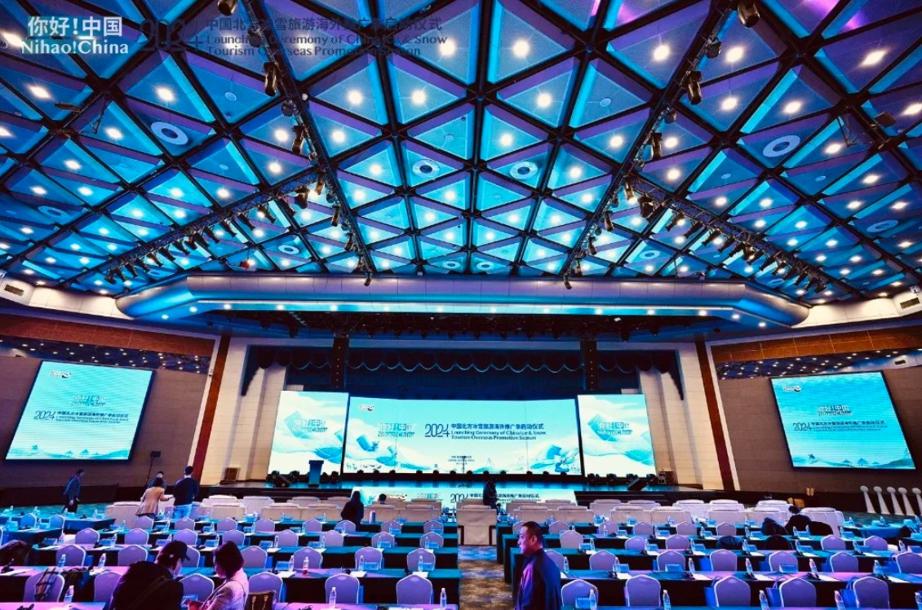

China Ice and Snow Tourism Overseas Promotion Season was launched in Urumqi, Xinjiang Uygur autonomous region, on Dec 8.
Experts and representatives from related organizations attended the ceremony and delivered speeches. Participants discussed the integration of cultural elements in ice and snow tourism to promote economic development and cultural exchange. They also exchanged opinions on the promotion of ice and snow tourism products in northern China, folk culture experiences and the cultural significance of Silk Road tourism.
Shen Han, a professor at the Department of Tourism, Fudan University, said: “The success of the 2022 Beijing Winter Olympics has pushed China’s ice and snow tourism market to usher in a prosperous development, and ice and snow tourism has become the core engine of winter tourism.”
She also pointed out that the growing number of consumers has led to the development and expansion of ice and snow tourism, focusing on the “ski tourism +” model, which includes diverse tourism experiences such as hot springs and nighttime entertainment.

Skiing enjoys growing popularity in China.[Photo provided to chinadaily.com.cn]
Shen said that northern Chinese provinces can focus on leisure and holiday skiing and develop ice and snow tourism products that meet the needs of different skiers. She believed that this will help to expand domestic and international markets.
Alain Wong Yen Cheong, ambassador of Mauritius to China, said that tourism is the largest and most diversified sunrise industry in the world, and it is hoped that tourism exchanges and cooperation can be further strengthened between Mauritius and China.
Fernando Lugris, Uruguay’s ambassador to China, emphasized the importance of prioritizing the protection of ecosystem and the promotion of cultural heritage. Biodiversity and multiculturalism fueled economic growth, he said.
“World cultural and natural heritage sites are the wealth of all mankind,” he said.
Wu Bihu, a professor of College of Urban and Environment Sciences of Peking University and academician of the International Tourism Development Institute, noted the Belt and Road Initiative has injected new vigor into the ancient Silk Road. “Ice and snow have a significant influence on tourism,” Wu emphasized.
“It is important to promote the diversity of ice and snow tourism by combining the culture of the Silk Road to meet the different needs of various countries and nationalities.”